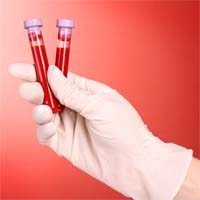Predicting Mesothelioma Outcomes with Soluble Mesothelin
New research suggests that a protein often used to help diagnose and track malignant mesothelioma may also be a valuable prognostic indicator. Soluble mesothelin-related protein (SMRP) is a biomarker for pleural mesothelioma, an aggressive asbestos-linked cancer that causes few symptoms until in its late stages. The presence of SMRP in the blood indicates that mesothelial cells on the lining around the lungs have been damaged. By testing the level of SMRP in the blood of a person with suspected mesothelioma, doctors can both confirm the diagnosis and track how well mesothelioma treatments are working. The Mesomark laboratory test for SMRP has become a staple of mesothelioma care in recent years. Determining Mesothelioma Prognosis Many factors influence mesothelioma prognosis, or likelihood…





